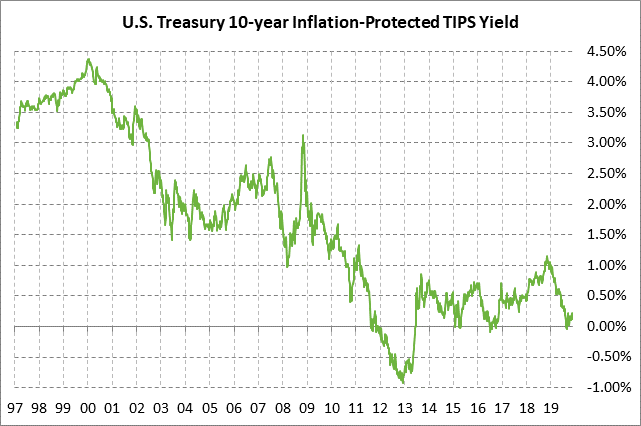- Pessimism grows about US/China trade talks
- EU hopes the coast is clear on auto tariffs
- Senate expected to approve CR today and avoid a government shutdown
- U.S. existing home sales expected to remain generally strong
- U.S. leading indicators expected to remain weak
- 10-year TIPS auction
Pessimism grows about US/China trade talks — The markets became less optimistic about a near-term US/Chinese trade deal yesterday after Reuters reported that a trade deal may not be completed this year, according to sources that Reuters cited that are close to the White House. In other negative trade news, the editor of China’s Global Times (a publication with ties to top Chinese officials) said in a Twitter post on Wednesday that few Chinese believe that China and the U.S. can reach a deal soon and that China is prepared for the worst-case scenario of a prolonged trade war. The White House tried to refute the morning’s negative trade news with a statement that, “Negotiations are continuing and progress is being made on the text of the phase-one agreement.”
The markets on Wednesday also became more worried that the Hong Kong situation might negatively affect the trade talks. Both the Senate and House on Wednesday easily passed the “Hong Kong Human Rights and Democracy Act.” That Act, if signed by President Trump, would make Hong Kong’s preferential trade status subject to an annual review and would also allow U.S. sanctions against Chinese or Hong Kong officials deemed responsible for human rights abuses or for curbing Hong Kong’s autonomy.
President Trump has yet to indicate whether he will sign the Hong Kong bill. China on Tuesday said that it strongly opposes any final U.S. legislation on Hong Kong and that any such legislation would result in unspecified retaliation. The markets are worried that if Mr. Trump signs the Hong Kong bill, Chinese retaliation might include the termination, or at least slow walking, of the US/Chinese trade talks. Even if Mr. Trump vetoes the bill, Congress could override a Presidential veto, thus infuriating China anyway and causing problems for the trade deal.
Aside from U.S. legislation, the Hong Kong situation could still interfere with the US/Chinese trade talks. Vice President Pence earlier this week said that a trade deal would be “very hard” if China cracks down violently on Hong Kong protesters.
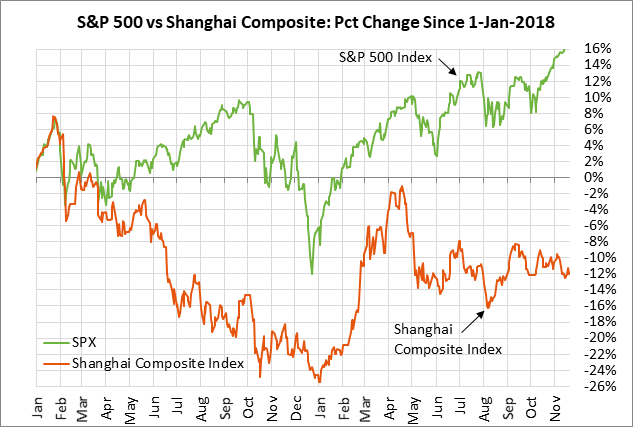
EU hopes the coast is clear on auto tariffs — EU Trade Commissioner Cecilia Malmstrom on Wednesday said that the Trump administration does not appear to intend to impose tariffs on EU autos since the Trump administration missed last week’s self-imposed deadline for a decision. Ms. Malmstrom said that EU officials are now assuming that the US/EU trade truce remains in effect while US/EU trade negotiations continue.
The Trump administration may have backed off on the tariff threat for the time being because the administration is making progress on getting individual European auto companies to commit to producing more autos in the U.S. and increasing their purchases from U.S. parts suppliers. Still, there is nothing to stop President Trump from reviving his threat for a tariff on EU autos. The EU has promised to slap retaliatory tariffs on $39 billion of U.S. goods if the U.S. imposes tariffs on EU autos.
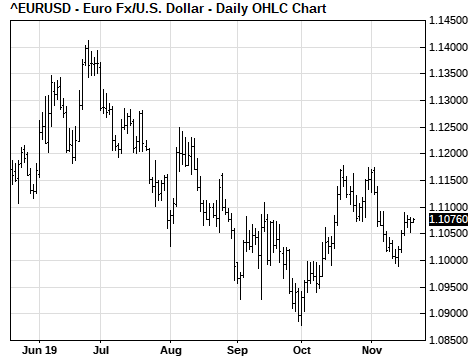
Senate expected to approve CR today and avoid a government shutdown – The Senate today is scheduled to vote on the continuing resolution that the House passed earlier this week, providing funding for the government through Dec 20. Senate Majority Leader McConnell said earlier this week that the White House has indicated that President Trump will sign the CR. A new CR would avert a U.S. government shutdown that would otherwise occur this Friday when the current CR expires on Thursday night.
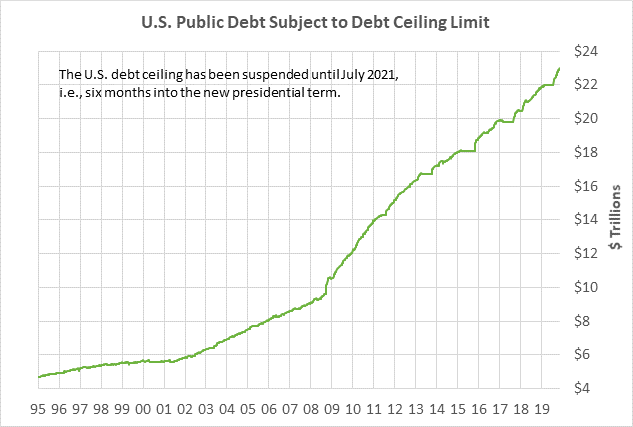
U.S. existing home sales expected to remain generally strong — The market consensus is for today’s Oct existing home sales report to show a +2.0% increase to 5.49 million, overcoming most of September’s -2.2% decline to 5.38 million. Existing home sales remain in generally strong shape at only 5% below the 12-year high of 5.64 million units posted in Nov 2017.
U.S. home sales have risen by +7.6% on a year-to-date basis, supported in large part by a sharp decline in mortgage rates that have made homes more affordable. The current 30-year mortgage rate of 3.75% is down by a massive -119 bp from the 8-3/4 year high of 4.94% posted in late 2018 and is just mildly above September’s 3-year low of 3.49%.
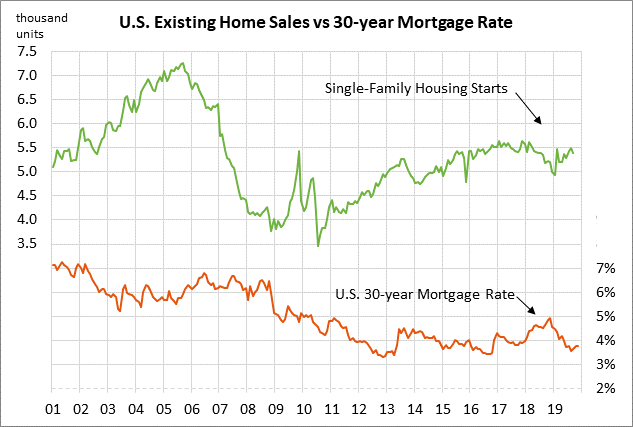
U.S. leading indicators expected to remain weak — The consensus is for today’s Oct leading indicators report to show a -0.2% m/m decline, adding to Sep’s decline of -0.1%. On a year-on-year basis, today’s Oct LEI is expected to ease to +0.2% from Sep’s 3-year low of +0.4%. The LEI is getting dangerously close to turning negative on a year-on-year basis for the first time since Nov 2009, just after the Great Recession ended.
The downward trend in the LEI is pointing towards weaker U.S. economic growth. Indeed, U.S. GDP in Q3 eased to +1.9% from +3.1% as recently as Q1, and the consensus is for GDP is to ease further to +1.6% in Q4.
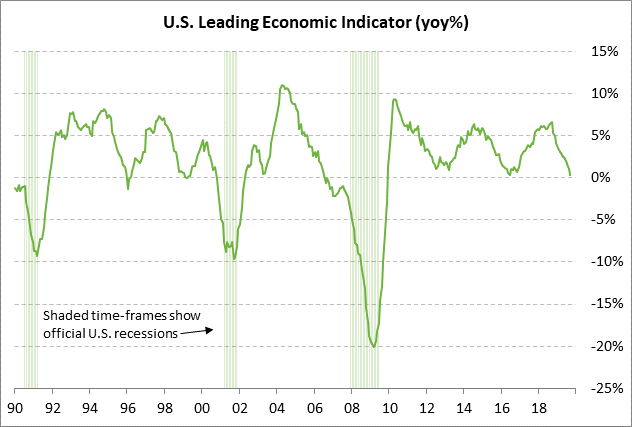
10-year TIPS auction — The Treasury today will auction $12 billion of 10-year TIPS in the second and last reopening of the 1/4% 10-year TIPS of July 2029. The benchmark 10-year TIPS yield on Wednesday fell to a 6-week low and closed the day -3.2 bp at 0.098%.
The 12-auction averages are: 2.51 bid cover ratio, $21 million in non-competitive bids, 5.3 bp tail to the median yield, 13.8 bp tail to the low yield, and 55% taken at the high yield. The 10-year TIPS is the second most popular security among foreign central banks and investors. Indirect bidders have taken an average of 67.3% of the last twelve 10-year TIPS auctions, well above the median of 59.7% for all recent Treasury coupon auctions.
